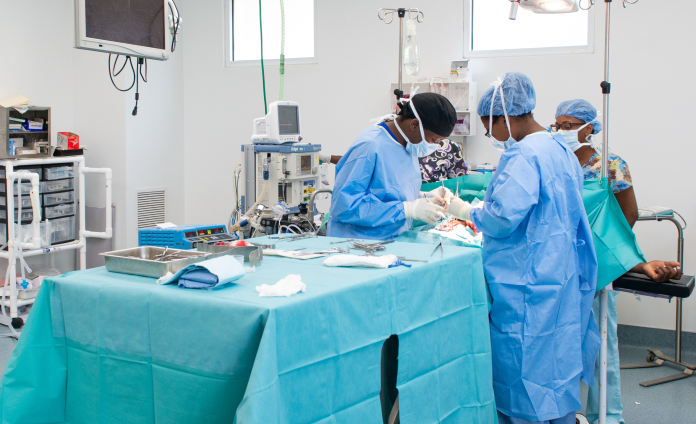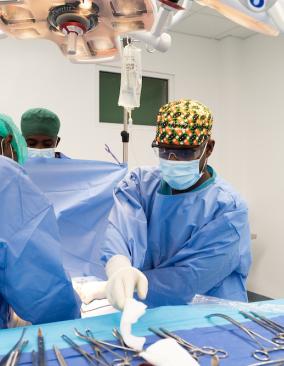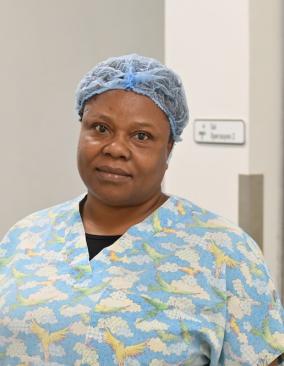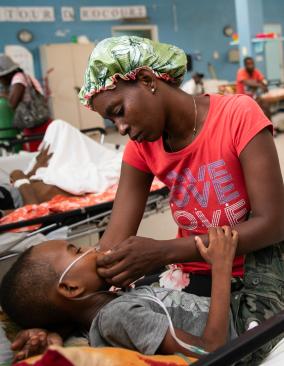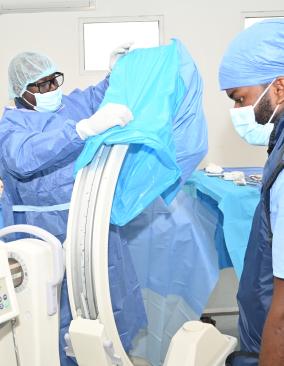HEI/SBH’s world-class surgical center is the most advanced facility of its kind in southern Haiti.
The facility opened in 2016, funded in part by USAID/ASHA with the generosity of the American people. It contains modern, fully-equipped operating rooms, a permanent orthopedic surgery program, and dedicated spaces for pre- and post-operative care.
Our dedicated surgical team of nearly 50 staff includes four surgeons, anesthetists, nurses, nurse assistants, and support staff. The team performs 280 procedures per month, on average, including 112 average monthly C-sections. Other surgical procedures address a wide range of conditions, including cancer, urology, vascular, gastrointestinal, and reconstruction needs. The team also conducts wound care procedures.
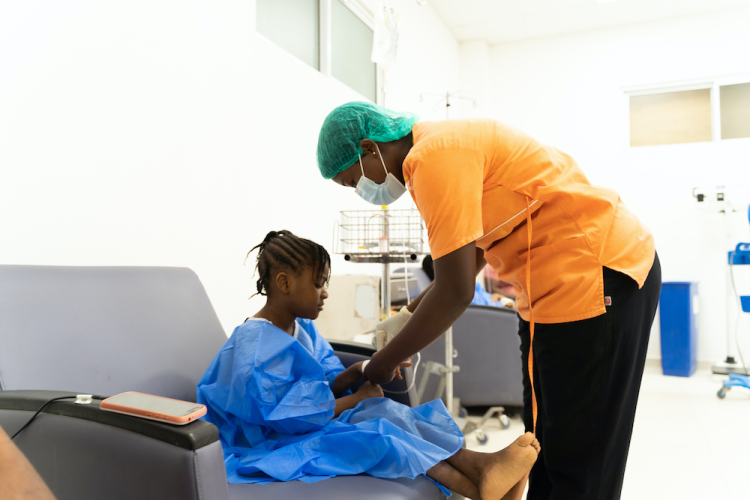
Delivering compassionate care in our surgical center.
Our Unique Surgical Model
At SBH, our model for surgery has revolutionized the level of surgical care patients can receive in a low-resource setting.
Hospitals in developed countries rely on large teams of highly-specialized surgeons to provide care to their patients. But in Haiti, where there are very few surgeons of any kind, this simply isn’t possible.
Instead of relying on large teams of specialty surgeons, we have cross-trained a small team of general surgeons to perform a comprehensive set of advanced specialty procedures. The hospital’s cross-training model is similar to the US Navy SEAL training approach in that each team member learns how to conduct many different tasks critical to the team’s mission. This approach increases overall system efficiency since every member of the team has intimate knowledge of and experience with our entire surgical system. As a result, our team is never dependent on any one individual and life-saving procedures are therefore never delayed.
